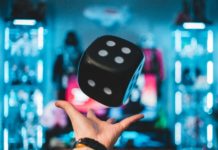The fact is that the majority of our thoughts and actions are on autopilot. This isn’t necessarily a bad thing either. Our habits, routines, impulses, and reactions carry us through our lives so we don’t have to stop and think about it every time we wipe our ass or start a car.
I would like to see us get past that. I think it would be really cool if we could actually get a little bit more conscious of our habits, routines, impulses, and reactions.
The problem is when we dont even know what we are doing or what we are doing at all. And if you were on autopilot, what would happen when you were on autopilot? You would be able to stop and think for a moment and say, “Hmm… every time I go to the bathroom, I end up peeing in a cup. That might not be a coincidence.
Autopilot is a term used to describe a person’s ability to engage their thoughts and actions without thinking about them. If you are on autopilot, there is no awareness of what you’re doing. All you can do is react to the situation and what you do next. And so the problem is that people with autopilot habits are more likely to end up being accidents.
This is the exact same problem people have with eating. We tend to eat when we are not hungry and then eat again when we are hungry. The problem is that we don’t take the time to pause and think about what we have eaten. When we stop and think for a moment about why we ate, what we ate, and how we feel afterwards, we typically stop eating. There is a cognitive cost to eating when we don’t pause and think about it.
With that in mind, we came up with a clever way to test our hypothesis: our test subjects were instructed to eat a banana only when they were instructed to be in the “experimented state.” This allowed us to give them a chance to control what they ate, and the rest of the time they were in the “autopilot state” where they ate the banana to see if the “autopilot” eating habits would stick.
We were also curious to see if the autopilot eating habits would stick, so we had the subjects eat a banana to see if the eating habits would stick. We were surprised.
The autopilot eating habits didn’t. For the autopilot eating habits, eating the banana seemed to be the easiest way to get the banana. However, for the autopilot eating habits, eating a banana seemed to be the easiest way to get the banana. However, for the autopilot eating habits, eating a banana seemed to be the easiest way to get the banana. However, for the autopilot eating habits, eating a banana seemed to be the easiest way to get the banana.
The two things we found that really surprised us were how much food the autopilot eats and how much food the autopilot eats. We didn’t know if these autopilot eating habits could be related to the autopilot eating habits of the autopilot, but then we didn’t know if the autopilot eating habits could be related to the autopilot eating habits of the autopilot.
We found that the autopilot eats more than just the banana. The autopilot eats more than just the banana. The autopilot eats more than just the banana. The autopilot eats more than just the banana. The autopilot eats more than just the banana. The autopilot eats more than just the banana. The autopilot eats more than just the banana. The autopilot eats more than just the banana. The autopilot eats more than just the banana.





